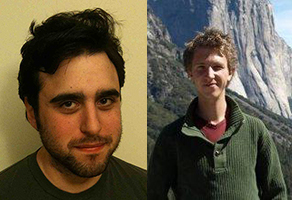
The Gosnell Award Committee is pleased to announce Fredrik Savje, Peter Aronow, and Michael Hudgens as the winners of the Gosnell Prize for “A Folk Theorem on Interference in Experiments”.
Savje, Aronow, and Hudgens’ paper characterizes conditions under which interference, where treatment by one unit can affect the outcomes of other units, can be safely ignored in an experimental setting. The authors’ main contributions can be illustrated by considering the difference of means estimator and the design where treatment is assigned independently to each unit with equal probability. Absent interference, the difference of means between the treated and control groups consistently estimates the average treatment effect.
The authors define two alternative quantities. The first is the interference marginalized treatment effect (IMTE), which is the unit-level effect of treatment averaging over the interference attributable to other units’ treatments, and the second is the IMATE, the sample average of the IMTE. Savje et al. show that as long as the number of pairs of units subject to interference grows at a slower rate than the total number of pairs, the difference of means consistently estimates the IMATE.
The theoretical framework is remarkably general and will provide a guide to future theoretical work in this area. The manuscript establishes identification and consistency results of the difference in means for the IMATE, which may provide a structure for future work deriving valid confidence intervals and p-values. Similarly, their work may be extended to include spatial interference, where the number of interfering pairs grows rapidly, but the average amount of interference between pairs decreases as the sample size increases.
The Gosnell Award Committee: Matthew Blackwell, Michael Peress, and Marc Ratkovic.